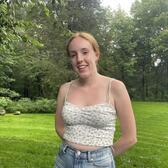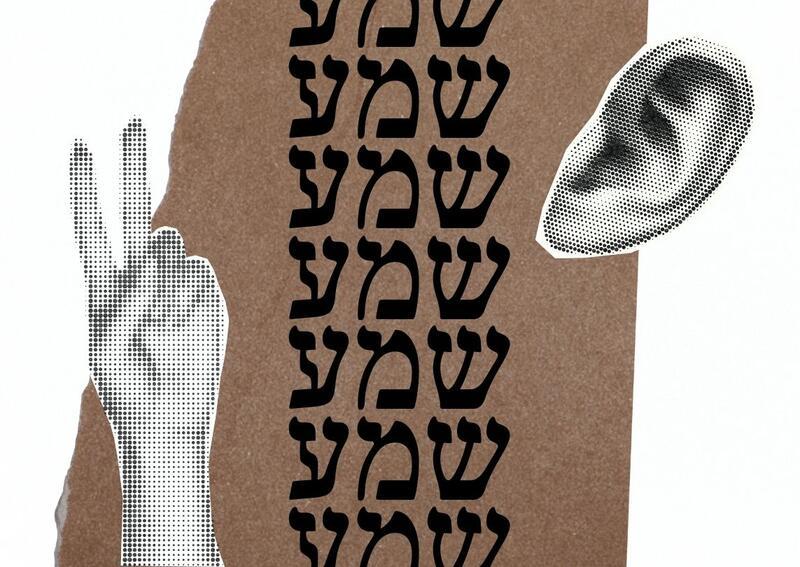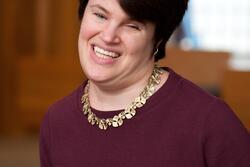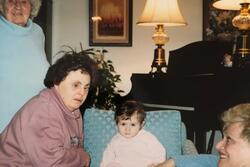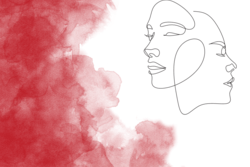Deaf Activism Is a Jewish Feminist Issue
Whether reciting prayers in unison or stumbling through a new melody, many Jewish communities have accepted sound as a powerful way to unite a group of people. But when a congregation prays together out loud, who is excluded?
For many deaf and hard of hearing Jews, services designed around voice and music bar them from fully taking part in religious life. Many synagogues do not provide accessible Jewish education or hire interpreters for services, which places a heavy burden on Deaf community members who seek involvement in Jewish life.
A common misconception of accessibility is that inclusion always comes at the cost of convenience or tradition. Sometimes, compromise is necessary to ensure that everyone plays an equal part. But often, accessibility can be achieved simply by imagining an alternative. Rabbi Rebecca Dubowe, the first deaf female rabbi to be ordained in the United States, applies this to the Sh’ma. The Sh’ma is a prayer centered around listening, and while many of us pay close attention to our sense of hearing while reciting this prayer, Rabbi Dubowe offers a different interpretation. She suggests that everyone, deaf or not, has had moments where they didn’t listen or try to understand. Rabbi Dubowe pushes each of us to consider the Sh’ma as a reminder that we all could be better, more considerate listeners, and that simply listening with our ears isn’t always enough. She isn’t devaluing other interpretations of the prayer, but rather, Rabbi Dubowe is offering a new lens through which everyone can view the Sh’ma.
In this sense, Rabbi Rebecca Dubowe’s teaching of the Sh’ma highlights another important facet of Jewish disability activism: disabled Jewish people’s voices need to be heard in Jewish spaces and everywhere else. Perspectives like Rabbi Dubowe’s make space for deaf Jews to connect with Jewish life fully. As Jews, our life experiences shape our connections to Judaism, and Rabbi Dubowe’s understanding of the Sh’ma is influenced by her experience as a deaf person. Unlike other teachings of this prayer that might inadvertently exclude deaf and hard of hearing people, Rabbi Dubowe’s teaching of the Sh’ma is intentionally inclusive of a broader audience. Judaism should not only cater to able-bodied individuals—all Jews have the right to feel like they belong and contribute to their community in a meaningful way.
As Jewish feminists, we should also fight alongside deaf people for inclusion within the feminist movement, which has often forgotten and misrepresented disabled individuals. Important deaf feminist figures have been erased from the narrative, which centers able-bodied American feminism. One, Laura Redden Searing, was a poet and the first deaf female journalist in the U.S. who published her work all throughout the Civil War. Searing wrote poetry about being a deaf woman, and published articles in support of equal pay for women and other women’s rights topics.
Another important figure was Annie Jump Cannon, who was born twenty years after Searing. A pioneer in astronomy, Cannon established a new system to organize stars and documented 350,000 stars in her lifetime. She was a vocal suffragist and played a central role in achieving the vote in 1916, all the while making space for women in the STEM field. Cannon and Searing were both influential figures at the start of the feminist movement, and their stories deserve to be celebrated.
Feminist activism must include deaf people’s stories, and advocate for their rights. Following the overturning of Roe v. Wade, much of this attention has been focused on access to abortion. Post-Roe, accessing abortion has been especially difficult for those in marginalized communities, deaf people included. Due to a lack of accessible reproductive health resources and sex education, deaf people are more likely to deal with unwanted pregnancies. Information is systemically withheld from deaf individuals, and as a result, they do not receive equal reproductive autonomy, including access to birth control and maternal care. Overall, the feminist movement needs to advocate more for deaf people’s right to receive reproductive healthcare.
Within Judaism, feminism, and everywhere else, deaf people’s right to equal access and inclusion is restricted by systems that center the needs of able-bodied people. When this happens, communities and movements prevent deaf individuals from fully engaging with them, and in doing so, lose valuable additions to their group. In the deaf community, there are many effective and powerful advocates for equal rights. Hearing people have the responsibility to stand with deaf people and intentionally foster accepting and accessible spaces. Deaf people face issues not because they are deaf but because of existing in a discriminatory society. As such, it is everyone's job to fight for equity. Though this task might seem daunting, it’s a worthwhile endeavor. By incorporating more perspectives, we can, together, create stronger communities and make the world a more inclusive place.
This piece was written as part of JWA’s Rising Voices Fellowship.

